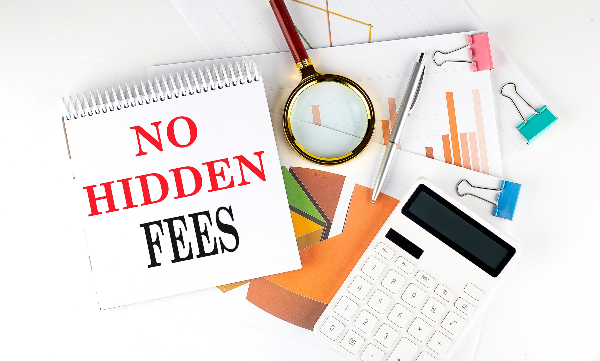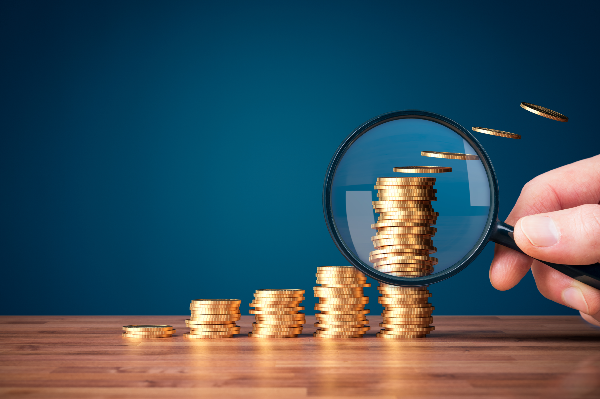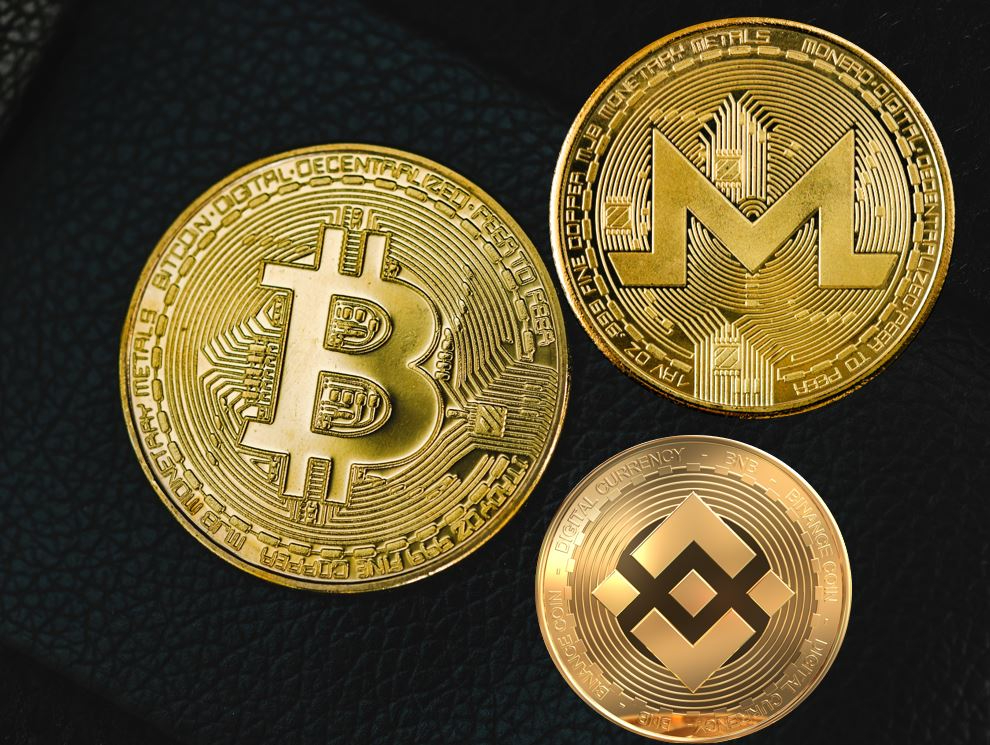A Guide to Investment Costs for Beginner Investors
It's wild how affordable investing is today. Once you invest in stocks, holding stocks is free. Earning dividends is free. Your main costs will be commissions, which is the cost of buying or selling a stock. You also have to pay taxes on your earnings. In this article we walk through every cost you can occur investing in stocks.
TL;DR
Too Long; Didn't Read
- Beginner investors should utilize fractional shares and $0.00 commissions to eliminate costs.
- Invest in U.S. stocks on U.S. stock exchanges to avoid commissions and ADR fees.
- Minimize your tax bill by holding stocks for more than a year.
- Do not trade often because you will lose potential profit due to "payment for trade flow".
Fractional Share Trading
Fractional shares are pieces, or fractions, of whole shares of a company or ETF.
Fractional shares are critical for beginner investors to start investing. Beginner investors who are young may not have a lot of capital. Use fractional shares to split up a small pool of capital between your stocks. This will diversify your portfolio.
Some share prices are so high that they may take up a large portion of the portfolio if one whole share is purchased. For example, one share of Berkshire Hathaway went for $527,590 a share as of April 2022! For most new investors, buy a fractional share of Berkshire Hathaway.
We used Berkshire Hathaway as an example because it's an extremely high share price. However, in this case, it's actually better to use Berkshire Hathaway's class B shares.
| Brokerage |
Commission |
Minimum |
| Fidelity |
$0.00 |
$1.00 |
| Robinhood |
$0.00 |
$1.00 |
| TD Ameritrade |
NOT OFFERED |
N/A |
| E*TRADE |
NOT OFFERED |
N/A |
| Schwab |
$0.00 |
$5.00 |
All data are sourced from public websites as of 03/18/2022 and subject to change.
Commissions for $0.00
Commissions are the transaction cost to buy and sell a security. Commissions use to vary between competitive brokerages. However, nowadays the purchase of a whole share of stock is almost universally $0.00 at every brokerage.
U.S. Stocks and ETFs
Your basic stock like Ford (F), Google (GOOG), or Tesla (TSLA) are purchased on U.S. stock exchanges. As long as these stocks are purchased online, the commission fee is $0.00. If you need to call in or fax in a trade, expect to pay a hefty commission. Some commissions can be as high as $25.
| Brokerage |
Commission |
Options Commission |
| TDAmeritrade |
$0.00 |
$0 online base commission + $0.65 per contract fee |
| E*TRADE |
$0.00 |
$0 online base commission + $0.65 per contract fee** |
| Robinhood |
$0.00 |
$0 online base commission |
| Fidelity |
$0.00 |
$0 online base commission + $0.65 per contract fee |
| Schwab |
$0.00 |
$0 online base commission + $0.65 per contract fee |
**Reduced fee to $0.50 with 30+ trades per quarter
Foreign Stocks (ADRS)
You can buy foreign stocks just like American stocks through American depository receipts (ADRs). Some key facts about ADRs:
- These ADRs can be bought and sold like a stock.
- Dividends received by the ADR are given to the investors.
- The trades and dividends are converted into U.S. dollars
- An ADR is traded on a U.S. Exchange during U.S. market hours.
- An ADR allows investors to avoid using foreign currency and foreign exchanges when buying foreign stock.
- An ADR takes a fee for these conveniences.
Per Schwab:
"The average fee is one to three cents per share. The actual fee amount charged and the timing of the pass-through fees vary per ADR issuer. Any fees are automatically passed on to the ADR investor."
Over the Counter Stocks
Over the counter stocks are typically micro-cap stocks not traded by the major U.S. exchanges. These stocks are traded through broker-dealer networks
*Source: stockbrokers.com
Payment for Order Flow*
Robinhood makes a portion of its revenue using "Payment for Order Flow"*. When you purchase stock, Robinhood will send your order to a specific market maker who has paid Robinhood to receive your order. These market makers act as a "middle man".
For example, the market maker will buy shares at $1000 from multiple Robinhood customers. Robinhood gets paid $0.05 for each share they direct to the market maker. The market maker then sells the shares in bulk for $1000.50. The market maker profits on the bid/ask spread and Robinhood profits off the fee they receive from the market maker.
In this example, you lost $0.50 per share in opportunity cost. In theory, you could have sold your shares for $0.50 more if you sold to the open market.
*Source: barrons.com

Fund Fees
For beginner investors, if you want to avoid hidden fees, just avoid funds. There are many great mutual funds you can invest in. With some searching, you can find no-fee funds to buy. But with so many management fees, load fees, and annual fees, its best to avoid them if you're a new investor. New investors can research a diversified, risk-managed portfolio using StockBossUp. They can then invest in this diversified portfolio using fractional shares.
Taxes
From irs.gov:
"The tax rate on most net capital gain is no higher than 15% for most individuals. Some or all net capital gain may be taxed at 0% if your taxable income is less than or equal to $40,400 for single or $80,800 for married filing jointly or qualifying widow(er)."
Control Costs as a Beginner Investor
If you are a new investor with limited capital, start investing today using fractional shares. Buy U.S. stocks to avoid ADR fees and use Brokerage firms with $0.00 commissions. Buy stocks with the expectation to hold for two years. By holding for two years, you can lower your tax bill. Follow these steps and you can avoid paying unnecessary investment costs.
Part of a Series for Beginner Investors












A Guide to Investment Costs for Beginner Investors
It's wild how affordable investing is today. Once you invest in stocks, holding stocks is free. Earning dividends is free. Your main costs will be commissions, which is the cost of buying or selling a stock. You also have to pay taxes on your earnings. In this article we walk through every cost you can occur investing in stocks.
TL;DR
Too Long; Didn't Read
Fractional Share Trading
Fractional shares are pieces, or fractions, of whole shares of a company or ETF.
Fractional shares are critical for beginner investors to start investing. Beginner investors who are young may not have a lot of capital. Use fractional shares to split up a small pool of capital between your stocks. This will diversify your portfolio.
Some share prices are so high that they may take up a large portion of the portfolio if one whole share is purchased. For example, one share of Berkshire Hathaway went for $527,590 a share as of April 2022! For most new investors, buy a fractional share of Berkshire Hathaway.
We used Berkshire Hathaway as an example because it's an extremely high share price. However, in this case, it's actually better to use Berkshire Hathaway's class B shares.
All data are sourced from public websites as of 03/18/2022 and subject to change.
Commissions for $0.00
Commissions are the transaction cost to buy and sell a security. Commissions use to vary between competitive brokerages. However, nowadays the purchase of a whole share of stock is almost universally $0.00 at every brokerage.
U.S. Stocks and ETFs
Your basic stock like Ford (F), Google (GOOG), or Tesla (TSLA) are purchased on U.S. stock exchanges. As long as these stocks are purchased online, the commission fee is $0.00. If you need to call in or fax in a trade, expect to pay a hefty commission. Some commissions can be as high as $25.
**Reduced fee to $0.50 with 30+ trades per quarter
Foreign Stocks (ADRS)
You can buy foreign stocks just like American stocks through American depository receipts (ADRs). Some key facts about ADRs:
Per Schwab:
"The average fee is one to three cents per share. The actual fee amount charged and the timing of the pass-through fees vary per ADR issuer. Any fees are automatically passed on to the ADR investor."
Over the Counter Stocks
Over the counter stocks are typically micro-cap stocks not traded by the major U.S. exchanges. These stocks are traded through broker-dealer networks
*Source: stockbrokers.com
Payment for Order Flow*
Robinhood makes a portion of its revenue using "Payment for Order Flow"*. When you purchase stock, Robinhood will send your order to a specific market maker who has paid Robinhood to receive your order. These market makers act as a "middle man".
For example, the market maker will buy shares at $1000 from multiple Robinhood customers. Robinhood gets paid $0.05 for each share they direct to the market maker. The market maker then sells the shares in bulk for $1000.50. The market maker profits on the bid/ask spread and Robinhood profits off the fee they receive from the market maker.
In this example, you lost $0.50 per share in opportunity cost. In theory, you could have sold your shares for $0.50 more if you sold to the open market.
*Source: barrons.com
Fund Fees
For beginner investors, if you want to avoid hidden fees, just avoid funds. There are many great mutual funds you can invest in. With some searching, you can find no-fee funds to buy. But with so many management fees, load fees, and annual fees, its best to avoid them if you're a new investor. New investors can research a diversified, risk-managed portfolio using StockBossUp. They can then invest in this diversified portfolio using fractional shares.
Taxes
From irs.gov:
"The tax rate on most net capital gain is no higher than 15% for most individuals. Some or all net capital gain may be taxed at 0% if your taxable income is less than or equal to $40,400 for single or $80,800 for married filing jointly or qualifying widow(er)."
Control Costs as a Beginner Investor
If you are a new investor with limited capital, start investing today using fractional shares. Buy U.S. stocks to avoid ADR fees and use Brokerage firms with $0.00 commissions. Buy stocks with the expectation to hold for two years. By holding for two years, you can lower your tax bill. Follow these steps and you can avoid paying unnecessary investment costs.
Part of a Series for Beginner Investors